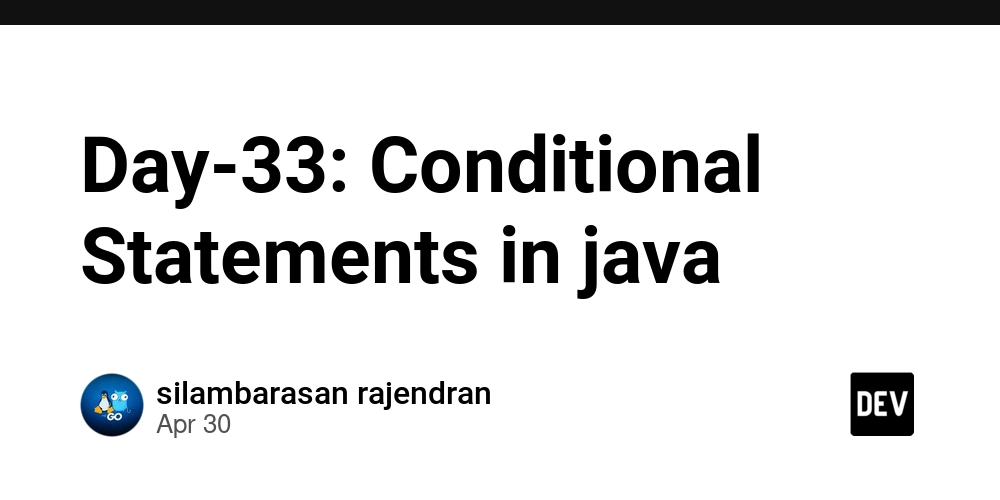How much income do you need to buy a home in Canada? A look at home affordability in March 2025
Is your salary enough to buy a home in these Canadian cities? Here’s how much you needed to earn to qualify for a mortgage in March 2025, compared to February. The post How much income do you need to buy a home in Canada? A look at home affordability in March 2025 appeared first on MoneySense.

Canada’s spring housing market is missing in action. That’s what the latest March data from the Canadian Real Estate Association (CREA) reveals. Home sales plunged to a low not seen for the month since 2009, with transactions down 9.3% year over year.
The sideline approach taken by buyers isn’t a surprise. The ongoing tariff talks and increasingly convoluted trade war have sowed plenty of uncertainty among investors and consumers. No one is keen to make a big purchase on the brink of a potential recession. And until U.S. President Donald Trump stops with tariff threats, it’s unlikely real estate demand will return in full-force.
It’s not surprising that buyers across Canada are hesitant to put an offer on a home right now. Even though the blanket tariffs aren’t yet enforced, the constantly changing rules around them has already harmed real estate markets and stoked fears of a Canadian recession. That’s hardly reassuring for someone considering a home purchase if they’re worried about their job and their savings.
That said, there will always be people who need to buy and sell, whether compelled by life circumstances, such as a new job, divorce and/or an expanding family. And the good news for those who did participate in the March market: Affordability and purchasing power significantly improved.
This is according to the latest March edition of Ratehub.ca’s home affordability report. This study, which calculates the required income to purchase an average-priced home in markets across Canada, found affordability conditions improved in 10 of 13 cities. The analysis uses month-over-month real estate and mortgage rate data to crunch the numbers, along with changes to the mortgage stress test.
Much of the improvements were due to a drop in mortgage rates in March. The Bank of Canada slashed its target interest rate by another 25 basis points on March 12, and bond yields hit a deep low early in the month, in response to Trump’s initial (though brief) roll out of blanket 25% import tariffs on Canadian goods.
That led to a drop in bond yields, which in turn helped push fixed mortgage rates lower. The average five-year fixed rate used in the study fell to 4.38%, compared to 4.55% in February. That in turn lowered the mortgage stress test to 6.38%, from 6.55% the previous month. Combined with softening home prices in several markets, that helped decrease the required income by several thousand dollars in Canada’s priciest markets.
Let’s take a look at how this affects Canadian home buyers across Canada.
You’re 2 minutes away from getting the best mortgage rates.
Answer a few quick questions to get a personalized quote, whether you’re buying, renewing or refinancing.
Housing affordability across Canada’s major cities
The chart below shows how affordability evolved between February 2025 and March 2025, in Canada’s main housing markets, based on the income required to qualify for a mortgage. Income required is based on the stress test rates of 6.55% for February and 6.38% for March, and mortgage rates of 4.55% for February and 4.38% for March
March 2025: Home affordability report
Slide the columns right or left using your fingers or mouse to reveal more data.
City February average home prices March average home prices Change in home prices February average mortgage payments March average mortgage payments Change in monthly mortgage payments February income required March income required Change in income required Toronto $1,073,900 $1,068,500 -$5,400 $5,543 $5,422 -$121 $221,200 $217,010 -$4,190 Hamilton $812,600 $811,000 -$1,600 $4,194 $4,115 -$79 $171,000 $168,300 -$2,700 Fredericton $343,800 $335,900 -$7,900 $1,775 $1,704 -$71 $80,920 $78,420 -$2,500 Halifax $561,400 $557,000 -$4,400 $2,898 $2,826 -$72 $122,730 $120,240 -$2,490 Vancouver $1,185,100 $1,190,900 $5,800 $6,117 $6,043 -$74 $242,600 $240,160 -$2,440 St. John’s $371,300 $370,500 -$800 $1,916 $1,880 -$36 $86,210 $84,960 -$1,250 Calgary $576,800 $583,400 $6,600 $2,977 $2,960 -$17 $125,700 $125,250 -$450 Montreal $562,300 $568,600 $6,300 $2,902 $2,885 -$17 $122,900 $122,450 -$450 Victoria $878,700 $891,000 $12,300 $4,535 $4,521 -$14 $183,700 $183,430 -$270 Ottawa $618,000 $626,200 $8,200 $3,190 $3,177 -$13 $133,600 $133,350 -$250 Edmonton $421,800 $431,300 $9,500 $2,177 $2,188 $11 $95,910 $96,470 $560 Regina $317,700 $326,300 $8,600 $1,640 $1,656 $16 $75,910 $76,600 $690 Winnipeg $373,700 $384,600 $10,900 $1,929 $1,951 $22 $86,670 $87,640 $970
Check Canadian mortgage rates
Customize the filters to compare rate types and terms.
Canadian cities where affordability improved
Where in Canada is owning a home becoming more affordable? In its latest data report, CREA pointed out that while sales fell in two-thirds of all markets, Ontario’s Greater Golden Horseshoe was hit especially hard. That’s quite apparent in Hamilton, where transactions dropped 35% year over year in February, according to the Realtors’ Association of Hamilton-Burlington. That resulted in the city’s average home price decreasing by $6,900, to $812,600; combined with lower mortgage rates, that cooled the required income by $3,450. The average monthly mortgage payment in Hamilton also dropped by $100, compared to January, to $4,194.
Buying in Toronto: A deep drop in sales
It’s been a rocky spring so far for Ontario’s largest market, as sales fell a whopping 23.1% annually in March, reports the Toronto Regional Real Estate Board (TRREB). Housing inventory, meanwhile, continues to pile up, with the number of newly listed homes skyrocketing over the short term, up 43% from February. That had a pull-down effect on the average home price in Toronto, which decreased by $5,400 between February and March to $1,068,500. As a result, the required income to purchase a home in the city decreased by $4,190, while the monthly mortgage payment shrank by $121 to $5,422.
Buying in Hamilton: Slower sales plague the Golden Horseshoe
Transactions in the Hamilton area have also dropped to 2009 levels, with just 701 units sold in March. This was due to “Continued uncertainty about tariffs and retaliatory tariffs is impacting housing activity,” according to Nicolas von Bredow, Cornerstone spokesperson for the Hamilton-Burlington market area. Between February and March, the average home price in Hamilton fell by $1,600, to $811,000, resulting in a $2,700 drop in the required purchasing power. The average monthly mortgage payment also fell by $79, to $4,115.
Buying in Fredericton: Vulnerable to volatility
Fredericton’s affordability ranking has fluctuated in recent months, placing it either at the top or the bottom of the chart in previous Ratehub affordability reports. The city’s lower average home price can subject the market to swings, even when there’s small changes to sales activity and price.
In March, home sales ticked up just 1.3% year over year, well outpaced by the number of newly-listed homes, which increased by 9.5% on an annual basis, according to the New Brunswick Real Estate Board (NBREA). That’s led local buying power to improve, with $2,500 less in required income to buy a home, corresponding to a $7,900 drop in price month-over-month. The average monthly mortgage payment also dropped by $71, to $1,704.
Canadian cities where affordability worsened
Just three of 13 cities saw affordability worsen in February, and all were located in Western Canada. With an average home price under the $500,000 mark, they each reflect how affordability conditions can be especially sensitive in lower-priced markets.
Buying in Winnipeg: A second month at the bottom
Unlike other major cities covered in this Canada housing affordability report, home buyer demand has remained consistent in Winnipeg throughout the early months of 2025.
Home sales increased by 6% year over year in March, according to the Winnipeg Regional Real Estate Board (WRREB). That helped push the average home price up by $10,900 month over month, to $384,600. That in turn increased the required average income by $970, and the average monthly mortgage payment by $22 to $1,951.
Buying in Regina: “Defying national trends”
Saskatchewan real estate continues to experience robust demand, with the Regina-Moose Mountain region as one of the tightest markets in the province, with less than three months of supply, leading to a hot sellers’ market.
That’s led to an $8,600 month-over-month increase in the average Regina home price, to $326,300. As a result, the required income to purchase a home in the city increased by $690, and the monthly mortgage payment by $16 to $1,656.
Buying in Edmonton: Still a hot sellers’ option
The Greater Edmonton Area (GEA) was on fire in March, with significant short-term increases in sales; transactions rose 36.9% month over month, according to the Realtors’ Association of Edmonton (RAE). The average home price in Edmonton increased by $9,500 compared to February to $431,300, pushing the required income to buy a home by $560. In turn, the average monthly mortgage amount increased by $11, to $2,188.
How much mortgage can you afford? How much house can you buy?
Ratehub.ca’s month-over-month affordability report keeps tabs on evolving short-term purchasing power in each market; this is illustrated through the average income a buyer would need to earn in order to qualify for a mortgage on the average-priced home in their city. Other factors, such as monthly real estate data, mortgage rates, and the stress test rate, are also taken into account when determining a market’s overall affordability, and how it changes on a monthly basis.
If you’re house hunting and want to do your own affordability analysis, you can crunch your own scenario using the MoneySense mortgage affordability calculator.
What’s next for Canadian mortgage rates in 2025?
Unfortunately, the mortgage rate outlook isn’t clear. That’s due to the continued talks of the U.S. tariff policy and the resulting market confusion.
While recession fears still abound for both the U.S. and Canada, they’ve now expanded to a global scale.
An analysis from the International Monetary Fund (IMF) suggests the global economic system most countries have operated on over the last 80 years is “being reset, ushering the world into a new era.” This has prompted the IMF to reduce its global growth forecast to 2.8% for 2025 and 3% in 2026, a “cumulative downgrade of about 0.8 percentage point” compared to the analysis released in January.
Stock markets have now absorbed several historic slumps in response to Trump’s erratic trade announcements, causing a rare rout in the bond market; after initially plunging in response to early April’s “reciprocal” tariff announcement and the U.S.’s 145% levy on China, bond yields started to tick up as investors became wary of the stability of the U.S. 10-year Treasury.
While typically considered the standard for the world’s safest investment, the 10-year yield spiked by over 40 basis points over the course of the week. It is thought that this signals weakening investor interest in US-backed assets.
As fixed mortgage rates in Canada are priced based on bond yields, this led to rate increases north of the border (Canada’s bonds, such as the Government of Canada (GoC) five-year yield, respond to 10-year Treasury pricing, in addition to other domestic economic factors).
This has already led to some mortgage lenders increasing their five- and three-year fixed term options by between 10 to 15 basis points, and more increases could be in store. Though, in today’s tumultuous economic times, no one can make a call with certainty.
Get free MoneySense financial tips, news & advice in your inbox.
Read more about mortgage affordability:
- Where to buy real estate in Canada
- The complete guide for first-time home buyers in Canada
- Tools to calculate your mortgage payments and costs in Canada
- Mortgage refinance calculator
- Mortgage renewal calculator
This article was created by a MoneySense content partner.
This is an unpaid article that contains useful and relevant information. It was written by a content partner based on its expertise and edited by MoneySense.
The post How much income do you need to buy a home in Canada? A look at home affordability in March 2025 appeared first on MoneySense.








































































